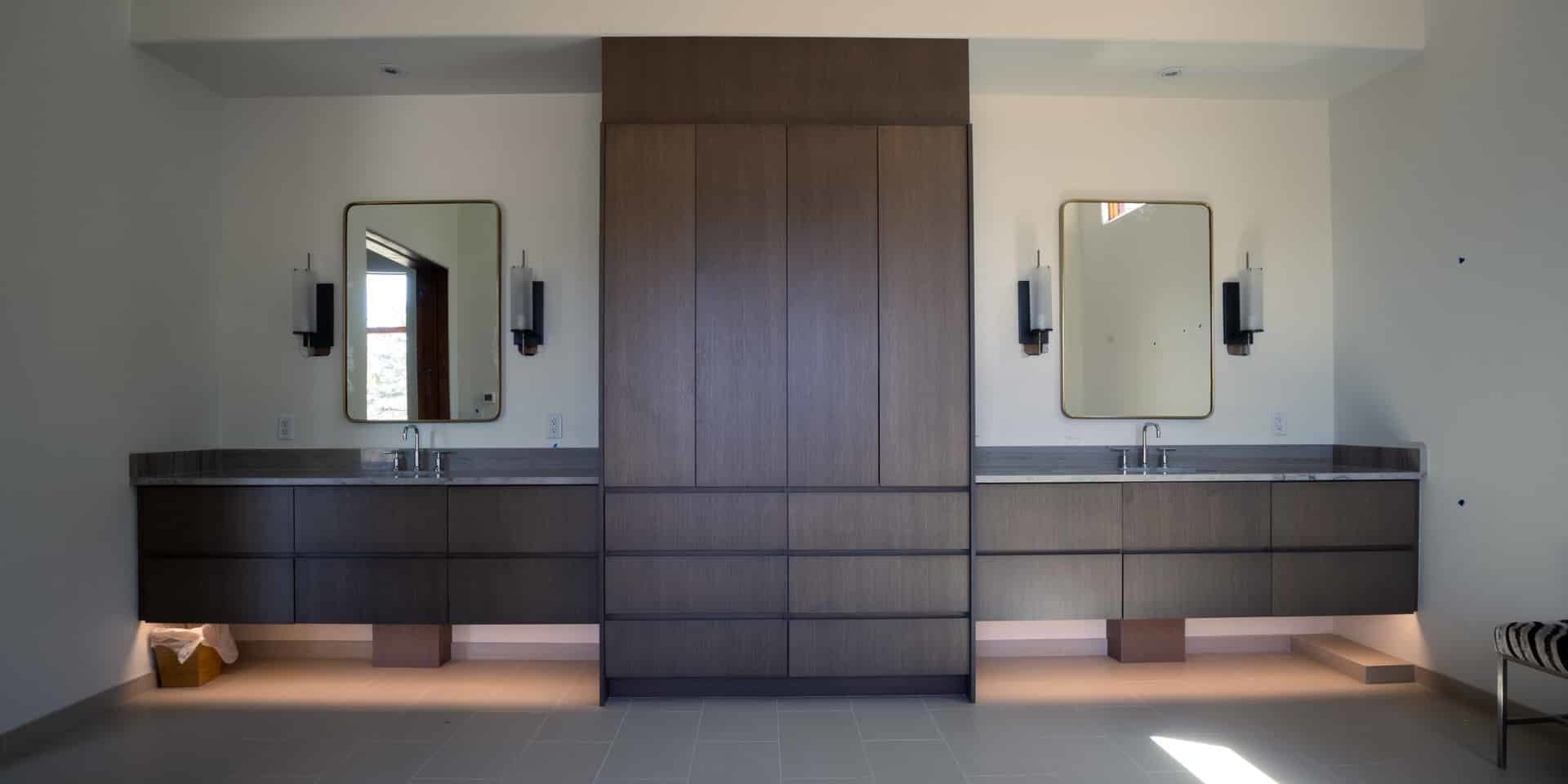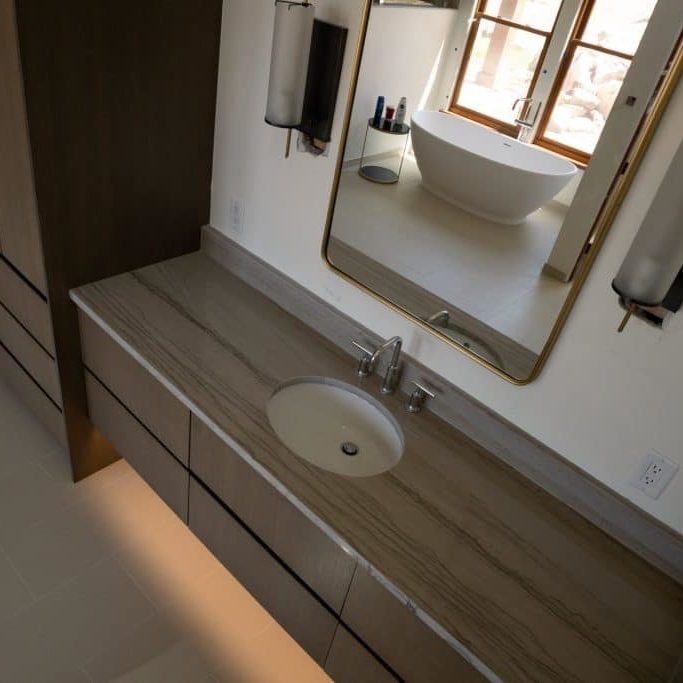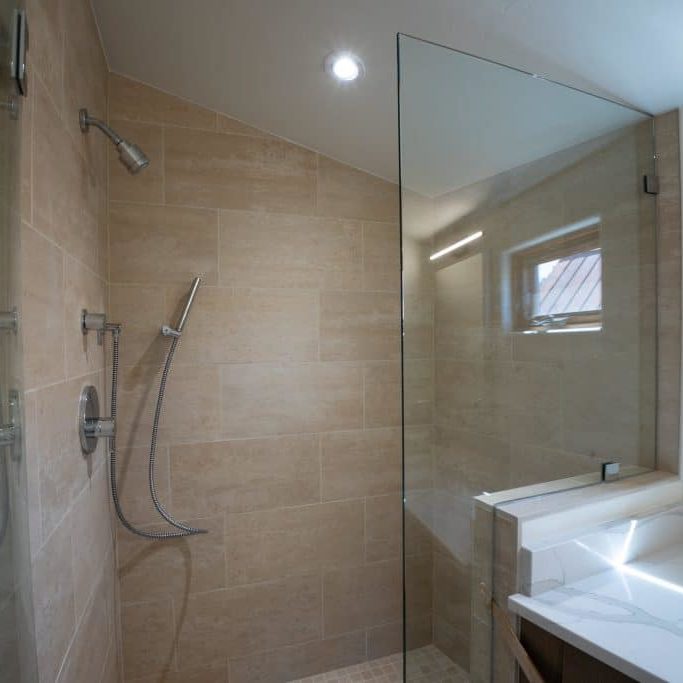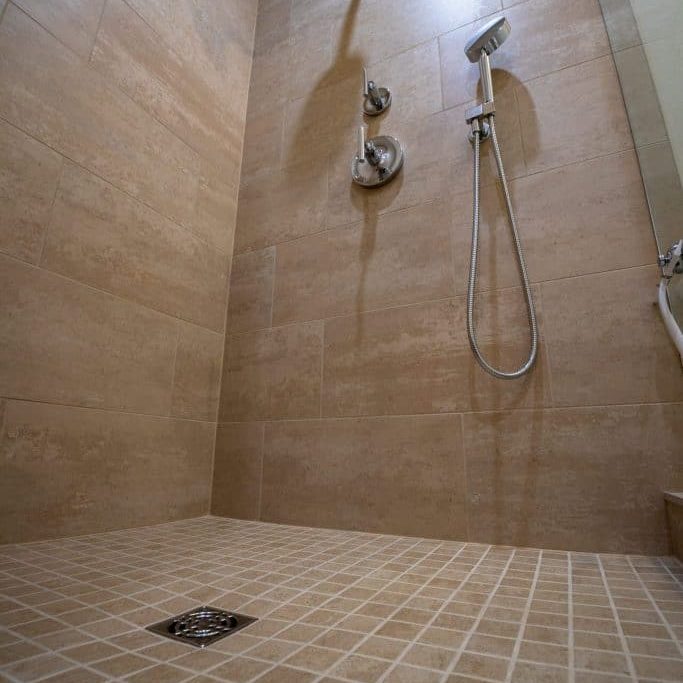Bathrooms
Remodeling a bathroom can be an exciting task! Our clients often spend hours looking at photos on Pinterest and Houzz, walking the isles of the big box stores and tile distributor showrooms locally for days, making notes and dreaming about the day they can get rid of their pink bathtub and matching toilet and replace that floral wallpaper from the 90s.
But before making any big decisions or large purchases on materials, here are some less exciting things to consider so your project turns out the way you are dreaming about it and so it will be functional for years to come. Here is our Pre-Bathroom Remodel Checklist to ensure your project stays on track, on budget and on time.
Budget
How much do you want to spend on your bathroom renovation? This is one of the first questions you need to consider before doing any “window shopping”. Setting a budget will help guide you as you make decisions about what to include or exclude in the remodel. Once you have figured out your total spend budget you can get a clearer sense of what type of tile, fixtures, and extras (like radiant floor heat) you can afford. View your chosen contractor as your personal guide to getting exactly what you want. With a clear budget in mind your contractor should be able to show you all your options.
Planning & Time
Far too often people assume that if they are remodeling a small bathroom it will only take a few days, or that there will be a significant time reduction between a small bathroom and a large master bathroom. This is not the case. Whether you are remodeling a large or small bathroom all the same steps are needed to complete the process. The extra 25-50 square feet savings is miniscule and in our experience the smaller the space does not equal lesser time. With a small space comes unique challenges, like the obvious cramped work environment, often forcing the contractor to keep tools in a separate room, etc.
Planning for time also needs to include not just the duration of the actual labor but also the design phase, choosing, purchasing and ordering tiles, fixtures, custom-built vanity or cabinets, etc.

Sequence of work
When it comes to renovating a bathroom there is a proper procedure and sequence of tasks that needs to be adhered to. Far too often we see people demolish their old bathroom without ever calling a contractor to schedule the finish work, shopping for tile or even planning their budget, this typically leads to a non-functional bathroom for months and in some cases more than a year. So before you pick up the hammer STOP and make sure you have thought it through. When it comes to the actual work, once all materials are on site and accounted for, we also recommend a certain sequence of work. Start from the top down when it comes to demolishing as well as remodeling. Working this way you are protecting your new components as well as saving time doing unnecessary cleanup or repairs.
What's inside the walls?
Don’t be fooled by a contractor who says you can simply update what you see without examining what is unseen. There are companies out there who’s claim to fame is remodeling your shower in a day or your whole bathroom in a couple days. Well there's a saying that applies to this type of contractor, what they are offering is often like “Putting lipstick on a Pig.” Yes when they leave, your bathroom (or “pig”) might look a lot better but ultimately it’s still the same bathroom that still has underlying issues (still a pig). If your shower or tub surround is unsightly due to mildew for instance, that's a visible sign of an underlying issue. If the proposed solution is to just cover over the ugly, how long do you really expect it to last before you start to see that pig again? When remodeling a bathroom most contractors agree and recommend opening up the walls around plumbing and electrical to ensure they are up to code, updated and functioning properly.
Design style and functionality
Do you ever feel overwhelmed by all the choices? There are many factors to consider like paint color, tile choices, tubs, faucets, cabinets and vanities, etc. We recommend starting with a theme, or an overall “look and feel” description before ever looking at the above mentioned finishes. You may want to work with a designer, or at the very least shop locally and take advantage of the designers working in the local tile, paint or plumbing warehouses. Design needs to work hand in hand with functionality so consider who will be using the bathroom – kids, adults, an elderly parent. Take note of the things in your current bathroom that are functional as well as the things you do not want to repeat in your new bathroom.



